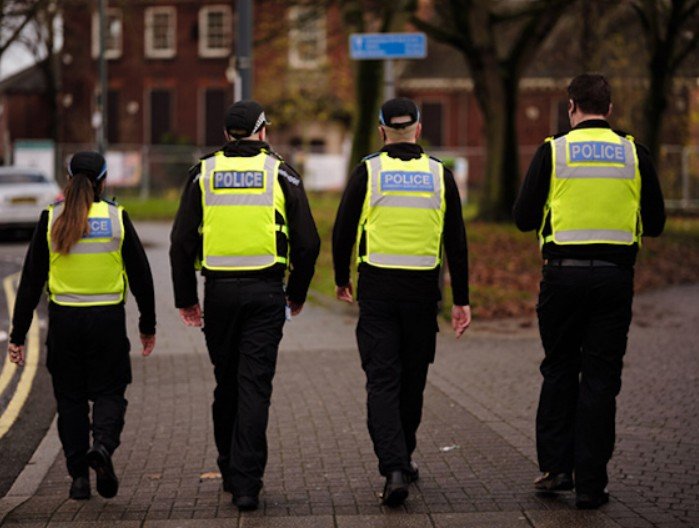Step-by-Step Guide: How to Become a Police Detective
1. Introduction
Becoming a police detective is a career path that combines a strong sense of justice, sharp analytical skills, and the drive to solve complex crimes. Detectives play a crucial role in the criminal justice system—gathering evidence, conducting interviews, analyzing crime scenes, and ultimately helping bring criminals to justice. Whether you’re inspired by real-life heroes or fictional crime solvers, this career requires dedication, discipline, and a strategic plan.
In this comprehensive, step-by-step guide, you’ll discover exactly what it takes to become a police detective—from education and academy training to gaining experience in the field and applying for promotions. Whether you’re just starting your journey or looking to advance within law enforcement, this guide will help you understand every stage of the process and set realistic expectations for reaching your goal.
2. Understand the Role of a Police Detective
Before pursuing a career as a police detective, it’s essential to understand what the job actually involves. Unlike patrol officers who respond to calls and maintain public order, detectives focus primarily on investigating crimes after they occur. Their work is more analytical and often involves extensive casework.
Detectives are responsible for gathering evidence, interviewing witnesses and suspects, examining crime scenes, and working closely with forensic teams. They write detailed reports, obtain warrants, and sometimes testify in court. Depending on the department, detectives may specialize in areas such as homicide, cybercrime, narcotics, fraud, or missing persons.
The role requires strong critical thinking skills, attention to detail, patience, and emotional resilience. Detectives often work long hours, including nights and weekends, especially when handling high-priority or time-sensitive cases. Understanding the reality of the job—both its rewards and its challenges—is crucial before committing to this demanding yet fulfilling career path.
3. Complete a High School Education
The first official step toward becoming a police detective is earning a high school diploma or GED. This is the minimum educational requirement for most law enforcement agencies across the United States. While it may seem basic, this foundational stage is critical in shaping the skills and discipline needed for future success in criminal justice.
During high school, students should focus on subjects that develop key competencies such as reading, writing, communication, and problem-solving. Courses in criminal justice, government, psychology, and forensics—if offered—can provide early insight into the field. Participation in extracurricular activities like debate team, student government, or community service can also help build leadership and teamwork skills.
Maintaining a strong academic record, staying out of legal trouble, and developing a positive reputation in your community are essential at this stage. These early efforts not only strengthen your future application to a police academy but also lay the groundwork for a professional career in law enforcement.
4. Pursue a College Degree (Optional but Beneficial)
While not always a requirement, earning a college degree can significantly enhance your chances of becoming a police detective. Many departments increasingly favor candidates with higher education, especially when it comes to promotions or specialized investigative roles. A degree can also give you a competitive edge and help you develop critical thinking and communication skills that are invaluable in detective work.
Commonly pursued degrees include Criminal Justice, Criminology, Psychology, Sociology, and Law Enforcement Administration. These programs often cover essential topics such as criminal law, forensic science, ethics, behavioral analysis, and investigative techniques.
Some departments may even offer tuition assistance or incentive pay for officers who hold a college degree. Although not mandatory, investing in higher education demonstrates commitment to the profession and can accelerate your career path from patrol officer to detective. If you’re aiming for long-term success and leadership opportunities in law enforcement, a college degree is a smart step to consider.
5. Enroll in a Police Academy
After meeting the basic educational and eligibility requirements, the next critical step toward becoming a police detective is enrolling in a certified police academy. This is where you’ll receive the formal training necessary to become a sworn law enforcement officer.
Police academy programs typically last between 12 to 24 weeks, depending on the jurisdiction. The curriculum combines classroom instruction with hands-on training. Topics covered include criminal law, firearms training, self-defense tactics, traffic enforcement, first aid, ethics, report writing, and emergency response procedures. Physical fitness is also a significant component, so recruits should be in good health and prepared for rigorous activity.
Graduating from a police academy is mandatory before you can be hired as a police officer. It’s a demanding but essential phase that equips you with the foundational skills, legal knowledge, and discipline required for a career in law enforcement. Successfully completing the academy proves your readiness to begin fieldwork and take the first steps toward becoming a detective.
6. Gain Experience as a Patrol Officer
Becoming a police detective doesn’t happen overnight—first, you must serve as a patrol officer. This is a crucial phase where you develop practical, on-the-job experience in law enforcement. Most departments require officers to work in uniformed patrol for at least two to five years before being eligible to apply for a detective position.
During this time, you’ll respond to emergency calls, enforce laws, conduct traffic stops, write reports, and interact with community members. More importantly, you’ll start handling preliminary investigations, gathering evidence, and observing how detectives operate on various cases.
This period allows you to sharpen your communication, observation, and decision-making skills—all of which are vital for detective work. It’s also an opportunity to build a professional reputation within your department. Demonstrating reliability, initiative, and strong investigative instincts can set you apart when promotion opportunities arise. Consider this stage the proving ground where you lay the foundation for a successful transition into investigative roles.
7. Demonstrate Strong Investigative Skills
To move from patrol to detective, it’s essential to prove that you have exceptional investigative abilities. While on patrol, officers often encounter situations that require more than just law enforcement presence—they demand analytical thinking, attention to detail, and a methodical approach to uncovering the truth. Those who excel in these areas naturally stand out as detective material.
Demonstrating investigative skill means going beyond routine duties. It involves thoroughly documenting incidents, preserving and analyzing evidence, interviewing witnesses effectively, and piecing together timelines and motives. Supervisors take note of officers who show persistence, curiosity, and sound judgment when faced with complex or unusual cases.
Taking the initiative to assist in ongoing investigations or expressing interest in specialized units like narcotics, homicide, or cybercrime can also enhance your visibility. Completing additional training or certifications in forensic science, interviewing techniques, or crime scene analysis is another way to show your readiness for the next level. Detectives must think critically, act independently, and follow leads relentlessly—and proving you can do that is the next step toward earning the badge.
8. Apply for a Detective Position
Once you’ve gained sufficient experience as a patrol officer and demonstrated strong investigative abilities, the next step is to formally apply for a detective position within your department. This process varies by agency, but it typically involves meeting specific eligibility requirements, passing an exam, and completing a competitive interview process.
First, make sure you meet your department’s criteria, which may include years of service, disciplinary record, and completion of additional training. You’ll likely need to pass a written test that assesses your knowledge of investigative procedures, criminal law, and analytical thinking.
Next comes the interview stage, often conducted by a panel of senior officers or supervisors. Here, you’ll be evaluated on your communication skills, problem-solving ability, past casework, and suitability for detective duties. Some departments also require scenario-based evaluations or practical exercises.
If selected, you may enter a probationary period or be assigned to a specialized unit such as homicide, robbery, or vice. Applying for a detective position is both a professional milestone and a formal recognition of your investigative talent and commitment to law enforcement excellence.
9. Undergo Additional Detective Training
Once you are promoted to a detective position, the learning doesn’t stop. Many law enforcement agencies require new detectives to undergo additional, specialized training to hone their investigative skills further. This training typically covers advanced investigative techniques, legal procedures, forensic analysis, and methods for handling complex cases like homicides, fraud, and cybercrimes.
Detective training programs often involve both classroom instruction and hands-on workshops. You may learn about new technologies in crime-solving, such as digital forensics, or improve your abilities in interviewing suspects and witnesses. Additionally, detectives may receive training in areas such as crime scene processing, evidence collection, case management, and courtroom procedures, which are crucial for preparing cases for prosecution.
The goal of this training is to equip you with the specialized knowledge and skills required for detective work. It also helps you stay updated on evolving criminal trends and investigative tools, ensuring you’re well-prepared to handle a wide range of criminal investigations. As a detective, continuous learning and adapting to new challenges will be an integral part of your career.
10. Choose a Specialization (Optional)
As a detective, you may have the opportunity to specialize in a particular area of law enforcement. Specializing allows you to develop expertise in a specific field, work on more complex cases, and pursue unique career opportunities. While it’s not mandatory, choosing a specialization can help you stand out and advance within the department.
Common areas of specialization for detectives include:
-
Homicide: Investigating murder cases, which often involves detailed forensic work, witness interviews, and a deep understanding of criminal behavior.
-
Narcotics: Focusing on drug-related crimes, such as trafficking, distribution, and abuse. This area often requires knowledge of drug laws, undercover operations, and drug-related investigations.
-
Cybercrime: Investigating crimes involving computers, the internet, and digital technology. This specialization often requires familiarity with hacking, identity theft, online fraud, and digital forensics.
-
Sex Crimes: Specializing in the investigation of sexual offenses, including assault, exploitation, and trafficking. Detectives in this field often work closely with victims and use sensitive investigative methods.
-
Fraud: Working on financial crimes, such as embezzlement, identity theft, and corporate fraud. Detectives specializing in fraud often need expertise in financial documents and forensic accounting.
Choosing a specialization is a personal decision based on your interests, skills, and the types of cases that excite you. It allows you to refine your expertise, work in a more focused area of law enforcement, and contribute to solving high-priority crimes in the community.
11. Stay Physically and Mentally Fit
Being a police detective is not only intellectually demanding but also physically and emotionally taxing. To succeed in this demanding profession, maintaining both physical and mental fitness is essential.
Physical Fitness: Detectives may not be engaged in high-intensity physical work every day, but being in good physical shape ensures you can handle any situations that require stamina, agility, or strength. Whether you’re pursuing a suspect on foot, handling tense situations, or managing the physical demands of long hours, staying in shape is crucial. Many police departments require physical fitness testing as part of their hiring process, and maintaining a fitness routine is an ongoing part of being a detective.
Mental Fitness: Mental resilience is just as important as physical endurance. The nature of detective work often involves dealing with difficult, high-stress situations, such as crime scenes, suspect interrogations, or traumatic cases. Developing coping strategies to handle stress and maintaining emotional well-being can prevent burnout and help you stay sharp. Regular exercise, mindfulness, and stress management techniques such as meditation or counseling can aid in keeping a detective mentally fit.
By committing to both physical and mental health, you not only improve your job performance but also set yourself up for a sustainable and fulfilling career in law enforcement. Detectives who prioritize fitness are better equipped to handle the challenges they face and continue to perform their duties effectively throughout their careers.
12. Maintain a Clean Record and Ethical Standing
As a police detective, maintaining a clean record and high ethical standards is critical to your credibility, effectiveness, and career advancement. Law enforcement officers are held to a higher standard, and any violations, whether criminal or ethical, can not only jeopardize your career but also damage the reputation of the entire department.
Clean Record: A detective’s career depends heavily on trust. Any criminal conviction or serious disciplinary action could disqualify you from being promoted to or remaining in a detective role. Law enforcement agencies typically conduct thorough background checks before promoting officers to detective positions, so it’s important to avoid any legal issues or misconduct throughout your career. Maintaining a clean record ensures that you can continue advancing in your career and keep your professional reputation intact.
Ethical Standing: Police work requires strong moral integrity, as detectives often deal with sensitive information, make critical decisions that affect people’s lives, and work with individuals who may have committed serious crimes. Upholding ethical behavior means being honest, impartial, and respectful in every investigation and interaction. Acting with integrity builds trust within your department, with colleagues, and in the community you serve. It also ensures that your cases are handled fairly and are more likely to stand up in court.
A detective’s reputation is built on reliability, honesty, and ethical conduct. By maintaining a clean record and consistently acting with integrity, you secure your position as a trusted member of law enforcement and continue to grow as a professional in the field.
13. Advance Your Career
Once you have established yourself as a competent and effective detective, it’s time to think about how you can continue to advance your career. Law enforcement offers several opportunities for professional growth, and as a detective, you can pursue various pathways to expand your expertise, take on leadership roles, or specialize in new areas.
1. Pursue Advanced Training and Certifications: Continuing education and specialized training are key to advancing your career. Many police departments offer advanced detective training or certifications in areas like forensics, cybercrime, or criminal psychology. Completing these programs will enhance your skills and make you eligible for more complex cases or leadership positions.
2. Seek Leadership Roles: After gaining significant experience, you may have the chance to move into supervisory or leadership positions within your department, such as detective sergeant, lieutenant, or even chief of police. These roles involve overseeing investigations, managing teams of detectives, and making critical decisions for your department. Leadership training and a strong understanding of law enforcement administration are often required for these positions.
3. Specialize in New Areas: As crime evolves, so do the types of detective work needed. You may choose to specialize in emerging fields like cybersecurity, human trafficking, or financial fraud. Specializing in these areas allows you to stay at the forefront of law enforcement and take on more challenging and impactful cases.
4. Transition to Other Law Enforcement Roles: Many seasoned detectives transition to roles outside of traditional detective work, such as working with federal agencies like the FBI, DEA, or ATF. These agencies often seek experienced detectives for specialized investigative roles at the national level. If you’re interested in broader opportunities, this can be an exciting direction for your career.
By consistently improving your skills, staying current with new investigative techniques, and seeking out leadership opportunities, you can take your career to the next level, increasing both your professional satisfaction and your impact in the field of law enforcement.
14. Final Thoughts
Becoming a police detective is a rewarding and challenging career that requires dedication, skill, and a deep commitment to justice. From completing the necessary education and training to developing a strong sense of ethics and professionalism, each step of the process contributes to shaping you into a capable and trusted detective.
Remember that the journey to becoming a detective is not a race but a career built on experience, continuous learning, and personal growth. By focusing on gaining the right experience as a patrol officer, demonstrating your investigative skills, and staying physically and mentally fit, you will be well on your way to achieving your goal.
As you advance in your career, keep an eye on opportunities for specialization, leadership roles, and further education to ensure you continue evolving within the law enforcement field. Most importantly, maintain your integrity, adhere to ethical standards, and serve your community with respect and dedication.
Becoming a police detective offers the chance to make a real difference in the world, and by following this step-by-step guide, you’ll be well-equipped to take on the challenges and responsibilities that come with this prestigious role. Stay committed, and you’ll find fulfillment in a career that helps to protect and serve others.




